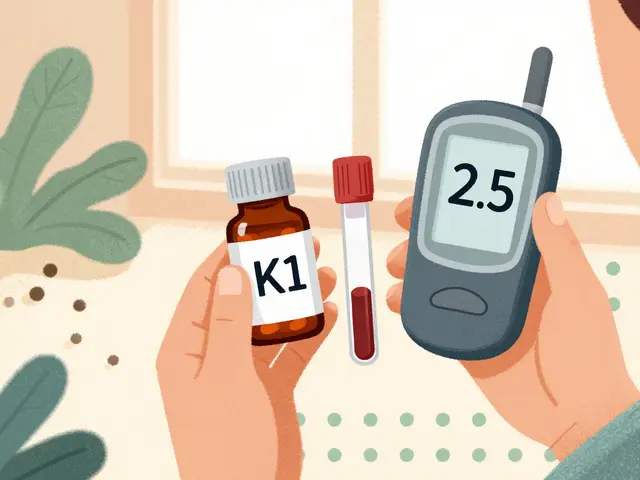Imipramine in the Elderly — practical safety and dosing advice
You found our May 2024 post on imipramine for older adults. If someone you care for is starting or already taking imipramine, this summary gives clear, useful steps to reduce risks and improve results.
Tricyclic antidepressants like imipramine work, but older bodies handle drugs differently. Metabolism slows, blood pressure can drop easily, and the brain is more sensitive to anticholinergic effects (think confusion, dry mouth, constipation, urinary trouble). Knowing what to expect helps you spot problems fast.
Key safety risks and what to watch
Watch for dizziness or fainting after standing — imipramine often causes orthostatic hypotension. If the person becomes unsteady, cut activity that risks falls and tell the prescriber. Confusion, sudden memory changes, or strong drowsiness are red flags; these can be anticholinergic effects or drug toxicity.
Cardiac effects matter. Imipramine can change heart rhythm and widen QRS on ECG at high doses. For anyone with heart disease or irregular heartbeat, ask the doctor about a baseline ECG before starting and repeat tests if doses go up or symptoms appear.
Hyponatremia (low sodium) is real in older adults on antidepressants. Look for headaches, weakness, nausea, or confusion. If these show, check sodium levels. Also watch for urinary retention in men with prostate issues and for severe constipation in anyone, which can become urgent if untreated.
Simple dosing and monitoring plan
Start low and go slow. A common approach is 10–25 mg at night to begin, then increase slowly every 1–2 weeks while watching side effects. Many older adults end up at lower maintenance doses than younger people — often under 75 mg/day. Rapid increases raise the risk of heart and anticholinergic problems.
Before starting: get a medical history, review all medications (prescription, OTC, herbal), check electrolytes and, when warranted, an ECG. Important interactions include other antidepressants (especially MAOIs or certain SSRIs), anticholinergic drugs, and any medicines that prolong QT interval. Tell the prescriber about over-the-counter antihistamines, bladder meds, or strong pain medicines.
Caregiver tips: give the pill at the same time daily (night often works because of drowsiness), use a pillbox, note any new confusion or balance problems, and keep a list of side effects to report. If severe dizziness, fainting, chest pain, fast/irregular heartbeat, or sudden marked confusion appear, seek urgent care.
This May 2024 article aimed to give quick, practical steps for safer imipramine use in older adults. Talk with the prescribing clinician about personalized risks, and keep monitoring simple but consistent to catch trouble early.









